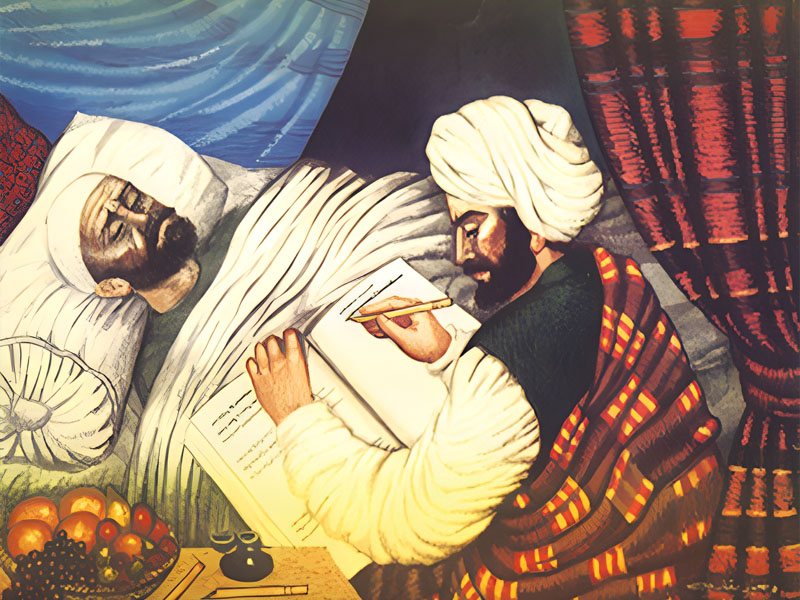Ibn Al Jazzar’s experiments and folk medicine
Issue 37

By Hammadi Thuwayib, Tunisia
The topic of experiments in the Arab-Islamic sciences warrants further in-depth study if we are to determine their true contribution to the advancement of knowledge.
Without a doubt, we have overlooked many issues related to Ibn Al Jazzar’s experiments, such as his role in experiments related to Islamic law. We also need to examine whether he used certain research tools in his experiments. Of course, it is not possible to address all aspects of his experiments in this study.
Our goal is to focus on Ibn Al Jazzar’s experiments in medicine and pharmacology. We can describe him as a physician, although some people believe that medicine is a recent development. Our opinion is similar to that of the Greeks, who believed that physicians such as Galen were wise men and philosophers.
With his comprehensive view of medicine, Ibn Al Jazzar successfully treated many Muslims. Ibn-Sīnā (Avicenna) said, “I treated many patients and experimenting helped me discover treatments and cures that surprised me.”
After a great deal of experimentation, Ibn Al Jazzar distinguished himself from the Greek physicians who took a purely theoretical-philosophical approach. He began to apply the empirical approach, which is similar to Kant’s scientific method. Ibn Al Jazzar’s experiments were based on his own experiences and knowledge.
From Ibn Al Jazzar’s life, it is evident that he was a humble man and that his noble approach to medicine was intended to help the poor, not to make him rich. He is quoted as saying, “In my book Zad al-musafir wa-qut al-hadir (Provision for the Traveller and Nourishment for the Sedentary), I wanted to collect as much information as I could about diseases and their causes, symptoms and inexpensive medical cures that all people could afford. I also used Galen’s book...”







































































